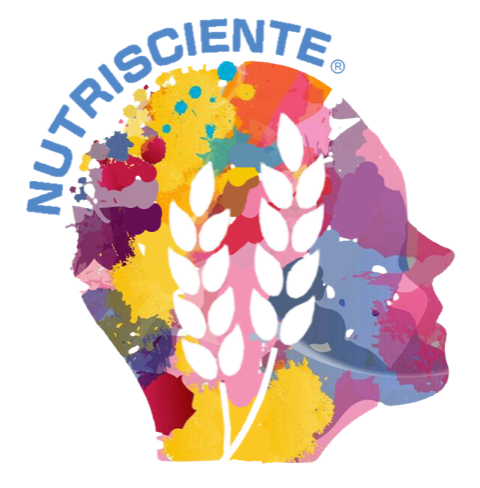The answer is a big YES!
Let’s start from a very simple and basic principle which is that all the food we eat (whatever it is), will be digested by the digestive system and transformed into smaller substances – during the digestion process – which we call nutrients. These nutrients enter the bloodstream after being absorbed by our intestines. It is elementary to say that it is the different nutrients and substrates that participate in the different cellular functions that occur every second in our body.
At brain level, there are specific nutrients that boost the production of neurotransmitters, such as vitamin B6 or omega-3, for example. One of the best-known neurotransmitters is serotonin, which when produced induces a feeling of well-being and happiness. So, if we think again about the nutrients we absorb, it is easy to understand that we can choose foods that boost the production of serotonin (or other neurotransmitters) and give us this feeling of well-being in the long term. This, of course, if there is a more conscious and intelligent diet suitable for that purpose. However, without this knowledge and unconsciously, we end up preferring foods that give us the feeling of momentary comfort (comfort food). There is no problem if we do this from time to time (because we are human and food should promote pleasure). The problem is when we opt for this type of food, often throughout our days, which in the long run not only promotes weight gain, but also reduces the consumption of nutrients that enhance the production of neurotransmitters and our relationship with food and body.
Today I will tell you about some of the foods that promote the production of these substances that are so important for our mood and that you can include in your diet (unless you have an intolerance or allergy):
Dark chocolate and oats: it has high doses of tryptophan, one of the pathways of one of the neurotransmitters and therefore increases its production.
Chilli pepper: contains a substance called capsaicin (responsible for the burning sensation) which induces the production of endorphin.
Fish: especially oily fish as they are rich in omega-3 fatty acids.
Dark green leafy vegetables: among many other micronutrients, these are rich in B vitamins, essential for the balance of the nervous system.
In the module “Depression, Anxiety and Food” are all the contents that explain, detail by detail, this whole process of production of neurotransmitters and how food and nutrients play an essential role in our mood. Throughout the module, I talk about all the nutrients that have scientific evidence in mood regulation, as well as the food groups that should be privileged for that purpose. In addition, you can access a list of herbal and drug interactions that may be “hindering” the absorption of these nutrients and/or hindering this regulation. You can access this module of the Nutrisciente® Academy here
Conscious and intelligent eating can literally make you feel good, focused and give you a sense of well-being.
With love for science and wellness,
Sara Barreirinhas




